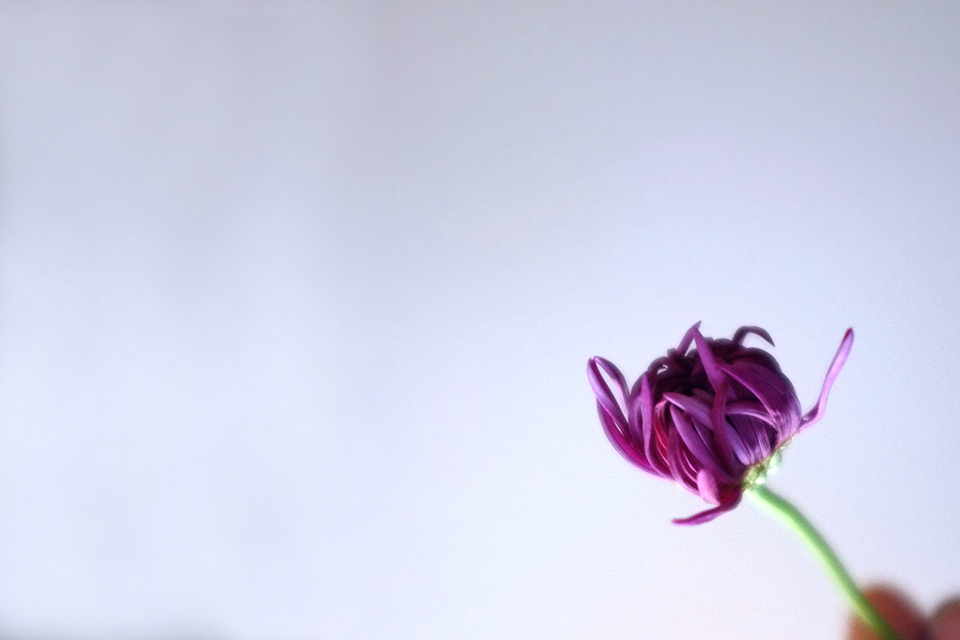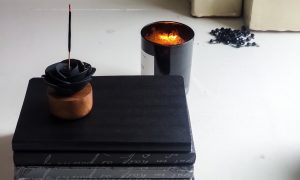 I must have been sucked in, at one time or another, every single trend that’s haunted the Internet since 2009 (random date, but I have a vague feeling that was when I started my first blog on Blogger—my daughter was then two years old). I’ve done the natural living, the resurgence of handmade (sewing, knitting, etc.), the gluten-free and Paleo diets, and now minimalism. I don’t even know who I am anymore. Is that what Internet does to us: makes us lose any authentic individuality we might have had? Or we do that any way, even without help from social media? Maybe a discussion we can have another time.
I must have been sucked in, at one time or another, every single trend that’s haunted the Internet since 2009 (random date, but I have a vague feeling that was when I started my first blog on Blogger—my daughter was then two years old). I’ve done the natural living, the resurgence of handmade (sewing, knitting, etc.), the gluten-free and Paleo diets, and now minimalism. I don’t even know who I am anymore. Is that what Internet does to us: makes us lose any authentic individuality we might have had? Or we do that any way, even without help from social media? Maybe a discussion we can have another time.
All these lifestyle trends have a laudable core philosophy which often appeals to the part of me that is stressed, isolated, insecure, and always overexposed to social media. But when the main message is about resisting blind consumerism and unhealthy lifestyles and finding what’s of real value, I cannot but appreciate. Until it all becomes too rigid, too exclusivist, and I see myself in the people who take it all too seriously. At that point all is left of the good intentions I had started with is nothing but guilt-dictated behaviors. That’s when I usually disengage.
My latest thing is minimalism. I thoroughly enjoyed this article in The Financial Diet, “Minimalism: another boring product wealthy people can buy,” by Chelsea Fagan)—it’s a fun read.
But I do disagree. I mean, not entirely, because no doubt minimalism can be all that (elitist, obnoxious, etc). But it is also something else, to me: a mental exercise that helps reduce anxiety. It suits me, because my brain functions best when free of noise, clutter, and excessive stimulation. It’s not something that I particularly appreciate about myself, since I feel a creative temperament should thrive on an accumulation of diverse stimuli from the environment, people, etc. But maybe that’s just a stereotype too.
My minimalism right now is a large wardrobe filled with monochrome clothes with interesting silhouettes but minimal froufrou. I like minimalist design in everyday objects too, although sometimes that makes them less utilitarian, and that is just stupid (I want buttons on my TV, please, and spelled out menus on my software interfaces! Ugh!).
It’s not like I don’t see the beauty in detail and decoration, but that has been done in the past, and it has been done very well. Maybe minimalism is just an expression of a desire for change. Because, of course, minimalism is not new. It has reached mainstream now, which means that it might actually be toward the end of its life. In art, minimalism as a trend was born at the beginning of the twentieth century. I’ll always think of Constantin Brancusi’s art, today turned into mainstream jewelry by designers like Sophie Buhai, often without as much as a mention of the influence (ex. SB Totem Sculpture, which copies the iconic shape of Constantin Brancusi’s Endless Column; not to speak of the SB egg pendant vs. Constantin Brancusi’s The Beginning of the World, only one of his many egg-shaped sculptures). Sorry for the little rant, but it has been bugging me for a while.
Minimalism might be attractive to me because it is more cerebral than ornate or realistic art. Literary minimalism is something I aspire to in my work too. (I found this old New York Times article a good introduction to literary minimalism.) I like short sentences, fragmented narratives, scarcity of description. I think unadorned, simple prose can be the most effective and beautiful. But at the same time, not easy to do. Which is fine, since I like projects anyway better than shiny, ready-finished products, and minimalism, with clothes or with words, is nothing if not a really promising project.




I read this post a week ago already, but was in a hurry so I didn’t have time for a comment. But here I am! 🙂
Anywhoo… I think the TFD article had some good points about the type of minimalism that one can only achieve with a lot of money. We see that kind of stuff on Instagram and in interior design magazines all the time. “Buy an Eames chair and you can call yourself a true minimalist!”
The problem is, I guess, is that there are two forms of minimalism that the article conveniently merges into one: there is the simpler way of life -minimalism, the one that really is about owning less, no matter the aesthetic. You can be a minimalist and love ruffly curtains or embroidered cushions, or crazy prints and what have you. You can be a minimalist because it is not about looking a certain way, it is about having less and being practical about what you own. Then there is the type of minimalism that is rooted in appearances only. The latter is the type that really upsets me. It’s not about having less or buying less: it’s about telling oneself that one is a minimalist, and then buying the right commercial products to support that notion. As long as it looks simple, one can label oneself a minimalist. I see that all the time in fashion, and especially with young women who go crazy at COS that produces _supposedly_ minimalist clothes. “Simple” lines, “better” materials, “timeless” cuts and what have you. But COS products are the same crap as H&M’s products, just as cheaply produced, and they end up at charity shops and fleamarkets in a matter of months just the same as the flashier H&M ones do. People who buy that stuff aren’t really interested in having less, it’s more about the cool factor, about _looking_ the part of someone who has jumped off the consumerist wagon. The same people might be telling themselves that they are minimalists, and end up buying their furniture at IKEA, because of the way it looks…
Okay – end of rant! Thank you for an excellent post, Lori!
Yes, the ruffled minimalist! That perfectly illustrates this issue.
See, you have such a clear perspective on things. Yes, there are at least two sorts of minimalism, the aesthetic and the actual lifestyle, and they don’t necessarily meet in the middle. I’ve always seen that difference when it comes to minimalism with clothes, where the aesthetic is one thing (monochrome, simple lines, uniforms, etc, which I am into right now) while actually owning fewer clothes is a different thing (and I don’t do that well at all). But yeah, the whole thing suffers from the confusion created by this duality. And the aesthetic is deceiving, because it can be easily bought, while real minimalism, as in pairing down your life, is a choice very few people actually make because it can be painful, it’s not just fun and games and “simple life”. In general, I guess, any lifestyle that can be purchased from a few select, curated stores is not the real, authentic thing. If you can go out and buy things in order to “be” something, then you’re probably on the wrong path, right?.
I have never been into a COS store. But when they go around touting clothes as “timeless” it makes me cringe. No clothes last forever, neither are any styles timeless, not in small part because most of us get bored pretty easily.
I do like the minimalist aesthetic, in large part because I’ve been influenced by the trend, I’m sure, and a little bit because I feel it calms my anxious mind. But you know, I remember a time, just a few years ago, when I didn’t want to own any piece of clothing that was not embroidered, and I can see myself going back there at some point in the future. And right now, even if the clothes I wear are monochrome and not overly embellished, I add a ton of jewelry that is not dainty or delicate, but it’s not made of wood or ceramic either.
I am enjoying this discussion a lot. You’re welcome to rant over here, Tiia, whenever you like and find the time for it.
I can’t wait to see what will minimalism and “simple living” be replaced with next. I think it’s probably time the “tastemakers” came up with something new for us to buy.
“No clothes last forever” – indeed! It often bugs me when I see articles in fashion magazines that claim certain pieces of clothing as “forever pieces” or even worse, “investments”. (I’d like to know when I start making money if I spend a thousand bucks on a coat or a handbag…) Even the most basic, classic pieces like black blazers or black slacks age, and more often than not, really not all the gracefully. Sometimes what is meant to be a timeless classic ends up looking the most dated.
I think you hit the nail on the head with this: “If you can go out and buy things in order to “be” something, then you’re probably on the wrong path, right?” As much as I like the idea that fashion and style is for everyone, and that fashion needs to democratize, and what follows this line of thinking: that all styles are relevant, that one just needs to find one’s own look… this type of logic relies on this notion of spending money to find, and to become a version of ourselves that we can care about. It’s like you said: we are fed the idea that once we spend money and buy the right things, we become something. And to keep being that something, we need to spend more money, to support our outer shells. I know that it can also be really empowering to find and define one’s style, but at the same time it can be a false construct: maybe it will become something we just desperately want to be, but are not, deep inside. The only solution I can offer is listening to oneself, to go with gut reactions, really ask oneself: “how does this make me feel?”.
The “investment” thing is beyond ridiculous. Every piece of clothing, every bag and shoe, even jewelry, lose value, especially if you actually use them. And yes, don’t start me on the “timeless classics”—what a misleading concept!
I have been thinking a lot about having too much freedom to choose who we are and what we want to achieve. I think it’s at the source of a lot of anxiety, although a feel-good idea in itself. You’re right that a lot depends on the individual ability to filter a lot of our desires, dreams, opportunities, etc. so that we stay in the realm of authenticity. The outer shell is so fragile otherwise, and often more of a burden than anything else. The human mind is just so complicated! Like you say, all we can do is monitor and try to stay in tune with ourselves. Wherever that might take us!
I am with you. I like the ethos of minimalism, and prefer the anti-consumerist and simple living thoughts/habits it promotes. However, there are many Internet people that take it to an extreme, or take it too far up the moral high ground, or commercialize it. That’s not what I’m looking for.
I think the TFD article focused too much on the latter. I don’t know where I personally am with minimalism or simple living, but it’s a good trend with good intentions, I believe.
Any such philosophy, no matter how valuable to start with, will become noxious if taken to an extreme, if not filtered enough through one’s personal situation in life, if followed without flexibility or consideration for other points of view, right? That’s what seems to be happening here. People just get all high and mighty about cleaning their house! It gets ridiculous. And it is also fascinating though how many of these trends reach spiritual, cultish proportions almost inevitably these days.
Lori, I loved reading this post so much! The article on TFD was a little too ‘ranty’. I don’t think everyone who preaches minimalism is rich or has expensive things. But, at the same time, we all see enough cases of minimalism being taken too far on social media and the internet. Some of the minimalism books and projects, asking to cull or get rid of most things seem to be taking it to the extreme. But, those are my thoughts.
I have similarly conflicted thoughts about ethical shopping. I myself am working on a post about my thoughts on that topic.
P.S: I used to love white, now minimalism has ruined it for me.:)
P.P.S: I am sure you already read this article. But, in case you did not, here it is:
https://www.nytimes.com/2016/07/31/magazine/the-oppressive-gospel-of-minimalism.html?_r=0
I know, that article was just a big anti-minimalist tirade, wasn’t it? And wasn’t that half the fun of it? I think it is just the trendy minimalism that is extreme and unrealistic for everyone, while the core spirit of it is fully justifiable and attractive for a lot of people from every walk of life. But I doubt it will ever become mainstream. It’s ridiculous to imagine that everyone responds to it. Like I feel people who embrace Marie Kondo’s advice are mostly people who suffer from anxiety and some form of OCD, and for whom such lifestyle is actually beneficial. But it’s not for everyone. And if embraced only as a trend, then it becomes a privilege of the more affluent for sure.